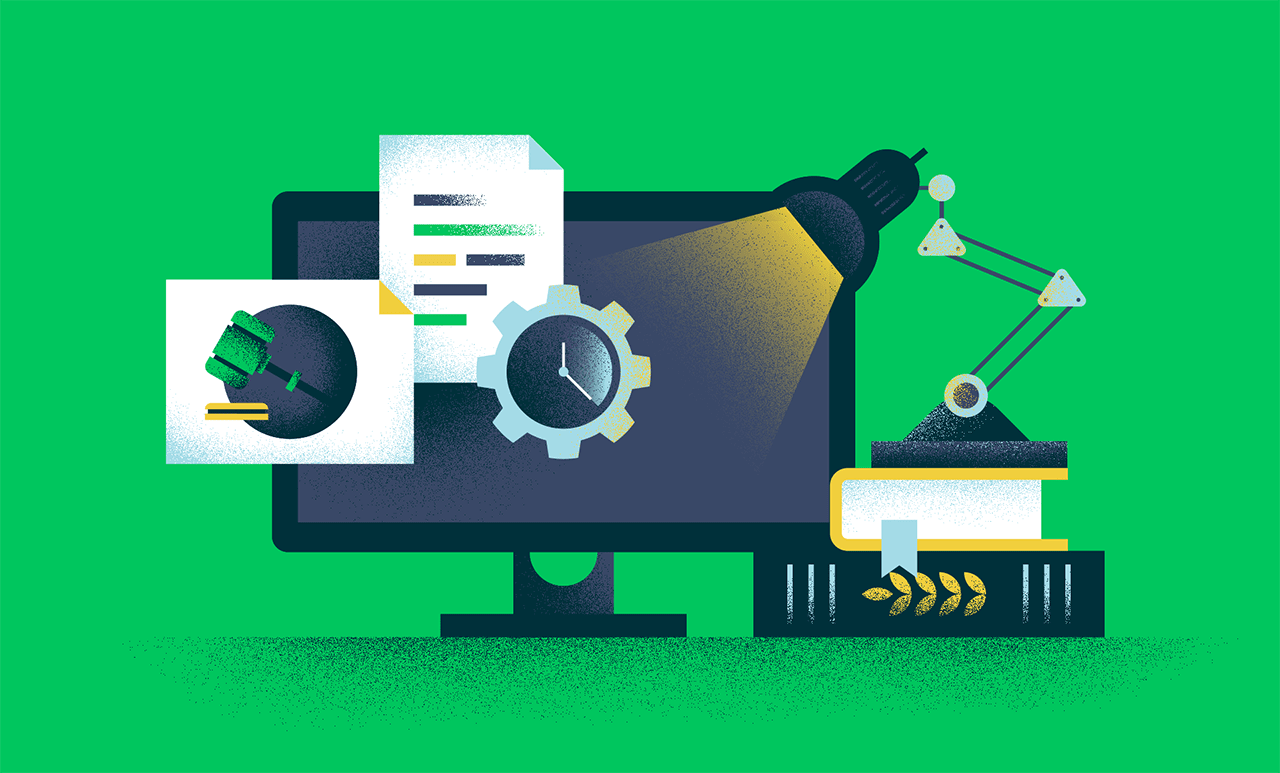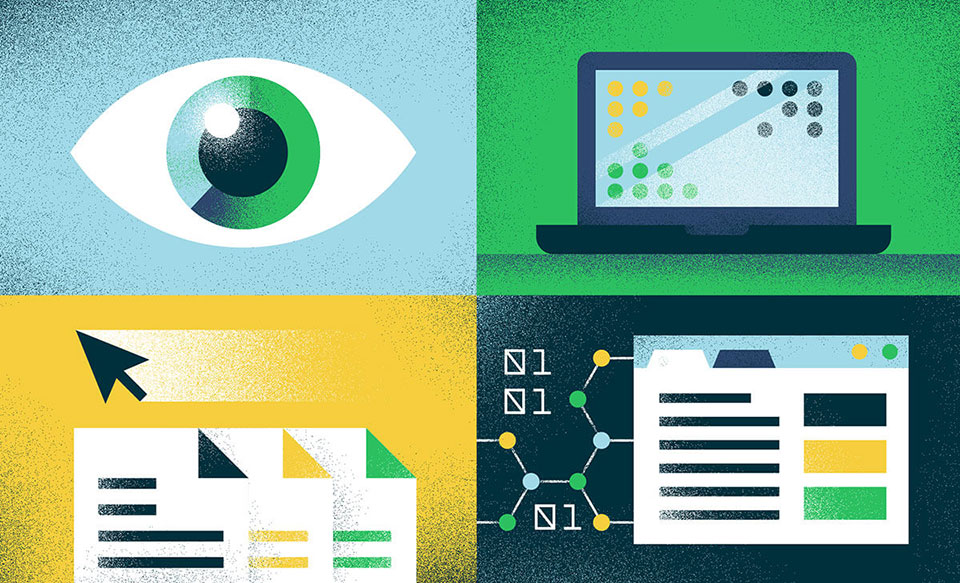Kira technology uses machine learning to extract important information from contracts. We refer to our approach as “Scalable Machine Learning,” and with that phrase we distinguish our software from both rules-based systems, on the one hand, and consulting-based or bespoke machine learning solutions, on the other.
Statistical machine learning is a good fit for analyzing text-based language such as contract terms and provisions. Despite the fact that language has grammar rules and patterns, at its core it’s very unpredictable. You might be able to guess the topics and ideas that are embedded in a type of document like a contract, but the precise way those ideas are expressed are very inconsistent and hard to predict. Language is also filled with various errors: spelling, bad grammar, poor OCR (optical character recognition), etc. Despite these errors, humans can still read and understand written language.
Statistical machine learning is the right tool to model that human understanding of text, as it can both recognize common patterns but still be sensitive to unpredictable nuances. Machine learning is able to uncover thousands of patterns that humans might consciously miss, often leading to surprisingly good results. With that kind of power, Kira can identify and extract contract provisions efficiently and with a high degree of accuracy.
Rules-based systems, like machine learning, are used to analyze data. In rules-based systems, however, data is processed by running it through human-crafted rule systems such as decision trees with IF-THEN statements, calculators, and scoring systems. Think tax preparation software, which asks for financial data and spits out a tax return based on the tax rules and calculations embedded in the software.
When applied to text, rule-based systems can be brittle and complicated. Rules can conflict; they do better with numerical information and short fact-based data but not so well with unstructured text; they do not handle OCR (optical character recognition) errors or unusual language. Rules-based systems don’t scale well; they need to be updated to reflect changes in the operation of rules. Humans are needed to create the rules, and these rules often require complex search operations to accommodate nuances in language. They rely on humans to anticipate all possible future variations in language, which is a daunting task. In short, rules-based systems are useful in situations where there is a relatively small number of very specific variations in the data to analyse. Most human language, even in a specific domain like legal, is not like that.
Bespoke machine learning solutions, which leverage consulting services to build machine learning models from scratch, don’t scale well. As a company we explicitly don’t do consulting. This is to keep us honest. We believe in building products, not selling development hours. Our approach means customers spend their time using the product, not building solutions from scratch, and it means users don’t need any special understanding of machine learning technology to derive value from the product.
With a pure machine learning approach, the idea is that we teach the models once and our users can leverage those models over and over again. Kira comes with over 1,000 pre-defined models (called Smart Fields) capable of extracting most of the common types of contract provisions that one is likely to find in a set of contracts. And even when a user needs to extract data specific to a practice or type of transaction that isn’t covered by one of the Smart Fields, Kira offers a way for users to easily create a custom model (called Quick Study) by simply providing the system with examples. No expensive consulting required.
Our philosophy is “machine learning first and foremost.” We solve our core problems with “scalable machine learning” rather than a combination of machine learning and manually written rules, or in conjunction with human consulting. It’s a pragmatic approach; we focus on techniques that genuinely work, and that do not require a level of human intervention that make them prohibitive from a time or cost perspective.
We also find that the most powerful thing we can do is give others tools so that they can create value themselves. Our machine-learning-first approach is to make the same tools that we use to teach the system available to our clients, without the need for deep computer science or AI domain knowledge. Our customers provide the legal domain knowledge; our products provide the machine learning.
Another of our principles is to always adopt the best of breed. We don’t focus on one technique or style of machine learning, rather we track and contribute to the state of the art across the world. We have a robust research team dedicated to evaluating new external technologies as well as creating our own novel techniques. In addition to our patents, we publish in high-profile peer-reviewed academic conferences and journals. A patent only shows that an idea is novel, not that it works or is state of the art; our team’s publication output keeps us honest by providing 3rd party verification that we are advancing the state of the art.
The business world is full of conflicting, inflated, and exaggerated claims about AI and machine learning. At Kira, we try to cut through all that with a simple, focused approach. We leverage the best machine learning capabilities in a package that can be used by professionals without special computer science or AI knowledge, and we enable users to customize their own models without having to call in expensive consultants. This is scalable machine learning, it gives our customers freedom, control, and allows them to do more with more predictable costs.



